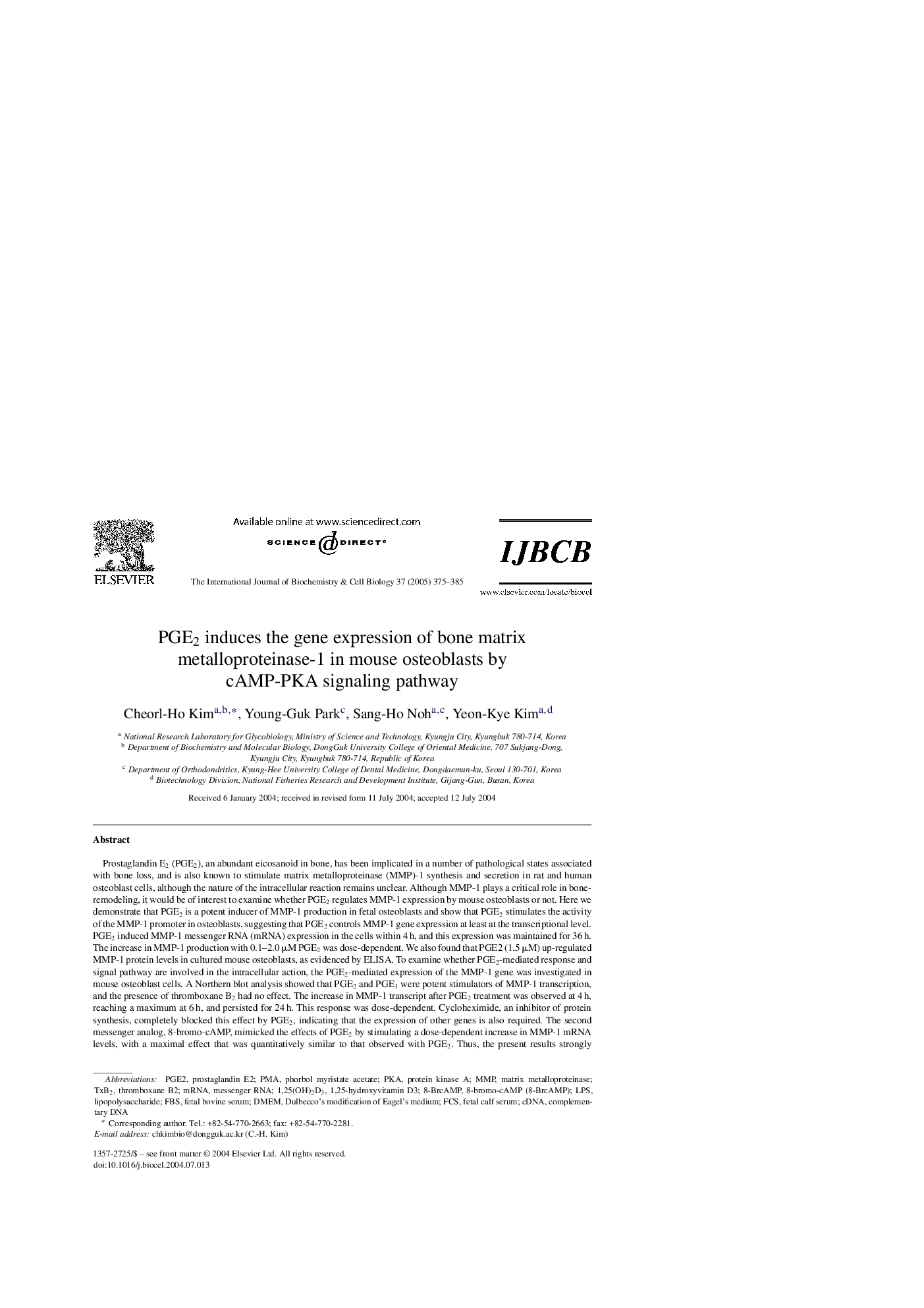| Article ID | Journal | Published Year | Pages | File Type |
|---|---|---|---|---|
| 9890105 | The International Journal of Biochemistry & Cell Biology | 2005 | 11 Pages |
Abstract
Prostaglandin E2 (PGE2), an abundant eicosanoid in bone, has been implicated in a number of pathological states associated with bone loss, and is also known to stimulate matrix metalloproteinase (MMP)-1 synthesis and secretion in rat and human osteoblast cells, although the nature of the intracellular reaction remains unclear. Although MMP-1 plays a critical role in bone-remodeling, it would be of interest to examine whether PGE2 regulates MMP-1 expression by mouse osteoblasts or not. Here we demonstrate that PGE2 is a potent inducer of MMP-1 production in fetal osteoblasts and show that PGE2 stimulates the activity of the MMP-1 promoter in osteoblasts, suggesting that PGE2 controls MMP-1 gene expression at least at the transcriptional level. PGE2 induced MMP-1 messenger RNA (mRNA) expression in the cells within 4 h, and this expression was maintained for 36 h. The increase in MMP-1 production with 0.1-2.0 μM PGE2 was dose-dependent. We also found that PGE2 (1.5 μM) up-regulated MMP-1 protein levels in cultured mouse osteoblasts, as evidenced by ELISA. To examine whether PGE2-mediated response and signal pathway are involved in the intracellular action, the PGE2-mediated expression of the MMP-1 gene was investigated in mouse osteoblast cells. A Northern blot analysis showed that PGE2 and PGE1 were potent stimulators of MMP-1 transcription, and the presence of thromboxane B2 had no effect. The increase in MMP-1 transcript after PGE2 treatment was observed at 4 h, reaching a maximum at 6 h, and persisted for 24 h. This response was dose-dependent. Cycloheximide, an inhibitor of protein synthesis, completely blocked this effect by PGE2, indicating that the expression of other genes is also required. The second messenger analog, 8-bromo-cAMP, mimicked the effects of PGE2 by stimulating a dose-dependent increase in MMP-1 mRNA levels, with a maximal effect that was quantitatively similar to that observed with PGE2. Thus, the present results strongly suggest that the PGE2 stimulation of MMP-1 synthesis is due to the activation of MMP-1 gene transcription and a subsequent marked increase in MMP-1 transcription. This effect is dependent on de novo protein synthesis and is mimicked by protein kinase A activation. The findings suggest that PGE2 is involved in the cAMP-PKA signaling pathway in regulating MMP-1 gene expression in osteoblasts.
Keywords
Related Topics
Life Sciences
Biochemistry, Genetics and Molecular Biology
Biochemistry
Authors
Cheorl-Ho Kim, Young-Guk Park, Sang-Ho Noh, Yeon-Kye Kim,
